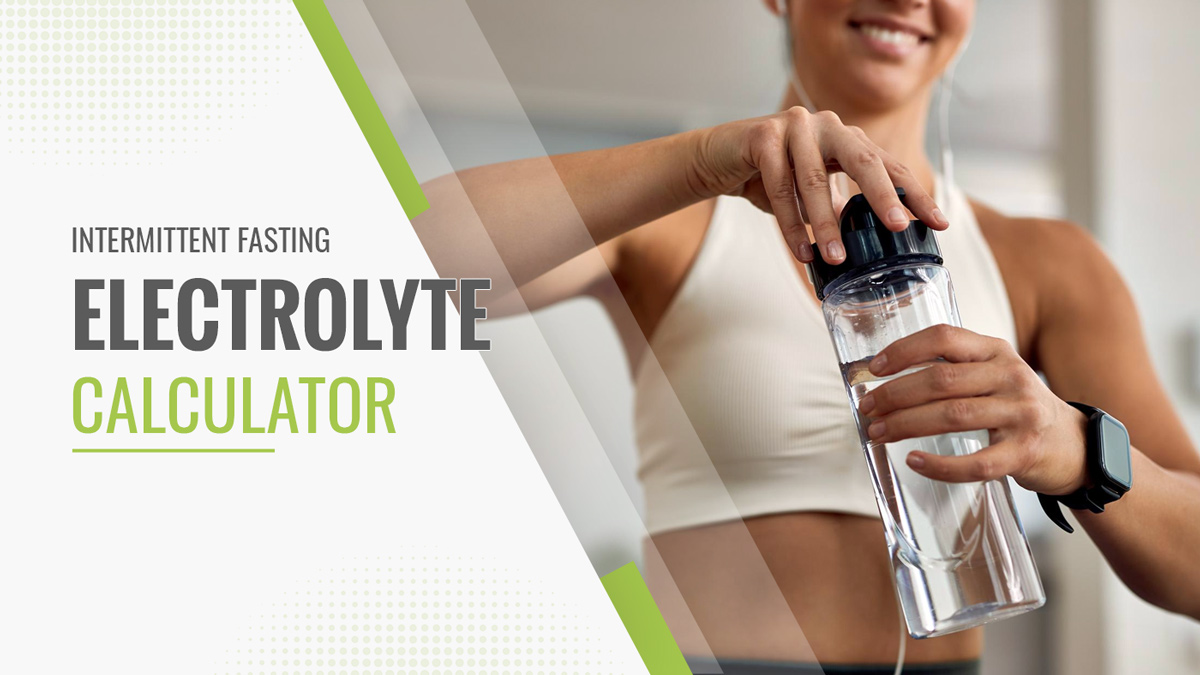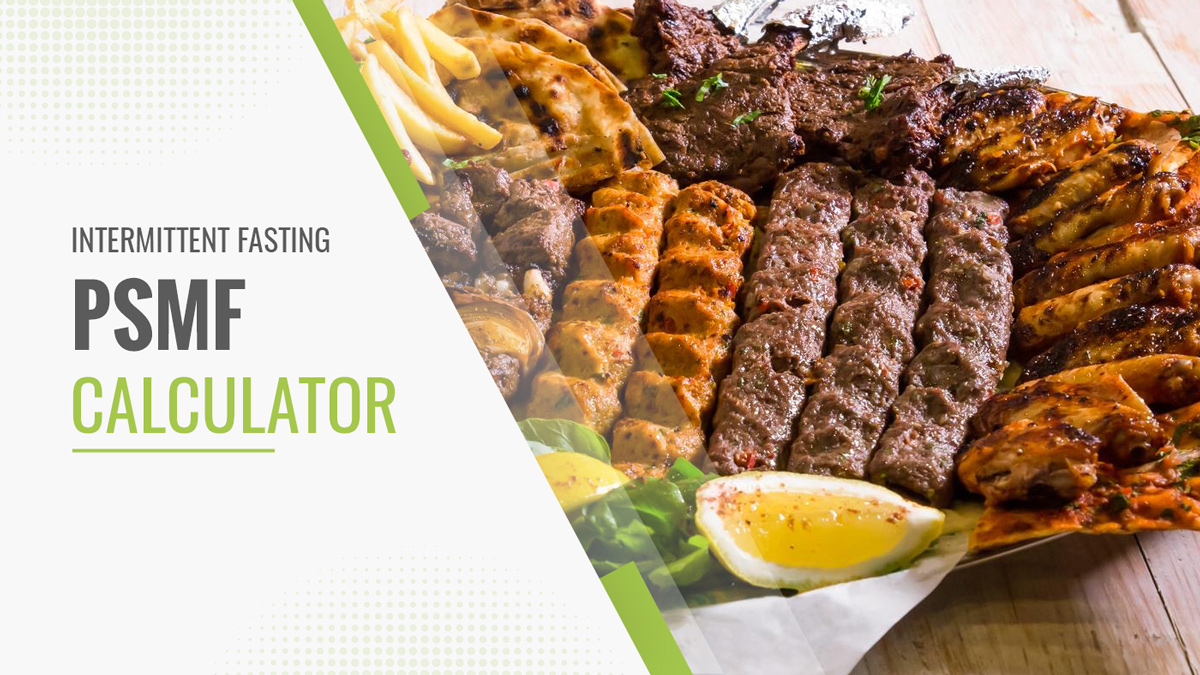Intermittent fasting (IF) can be safe for most healthy adults but is not universally recommended. Certain groups, like pregnant women, people with diabetes, or those with a history of eating disorders, should consult a doctor before trying IF. This ensures a safe and effective approach to fasting.(1)(2)
Factors like age, sex, weight, and individual health conditions can influence safety while practicing IF. So, let’s put generalizations aside and look at the scientific literature to get a definitive answer.
Is Intermittent Fasting Right for You? Who Should Try and Who Should Avoid
Calculate Your Autophagy Timeline
Find out exactly when your body enters autophagy based on your unique profile, diet, and fasting protocol.
Calculate My Autophagy Window →Intermittent fasting is generally safe and significantly beneficial but could also cause some side effects.
The most common side effects of intermittent fasting are:
- Hunger pangs: Fasting, especially in the initial stages, can lead to significant hunger, causing pain and discomfort.
- Mood swings: The lack of calorie intake can affect mood, causing irritability and mood swings.
- Fatigue: Longer fasting bouts could result in fatigue and weakness due to low blood sugar levels.
- Headaches: Headaches can occur due to dehydration or higher cortisol production during fasting.
- Mental fog: Lower glucose levels may impair brain function, causing a lack of focus and alertness.
- Insomnia: Changes in eating patterns can affect sleep quality, potentially causing insomnia.
- Anxiety: Fasting can raise cortisol levels, leading to increased stress and anxiety.
- Nutrient deficiencies: A poorly planned diet could lead to mineral and vitamin deficiencies while practicing IF.
Of course, most healthy individuals won’t experience these side effects, and even if they do, they will pass quickly and resolve on their own. However, they can’t be ignored.
The severity of these side effects can vary depending on the individual. Furthermore, the following people should avoid intermittent fasting:
- Children and adolescents
- Pregnant or breastfeeding women
- Older adults
- Individuals with pre-existing medical conditions
Children and Adolescents
Children and adolescents must receive adequate nutrition to support their physical growth and cognitive development. Therefore, pediatricians don’t advise any form of fasting or calorie restriction during pre-pubescent or adolescent years.
Fasting-induced side effects like nutritional deficiencies or insomnia could have far-reaching consequences this early on. Nutritional deficiencies and lack of sleep could lead to hormonal imbalances, stumped musculoskeletal growth, weakened immune system, hindered cognitive development and academic performance, and so on. (3)
Anxiety, stress, and mood swings are already a part of adolescents’ daily lives due to massive hormonal changes, and exacerbating those issues is not recommended.
Pregnant or Breastfeeding Women
Intermittent fasting is deemed risky for pregnant and breastfeeding women. The caveat is that studies, like the meta-analysis by Jocelyn D. Glazer et al., showed that fasting (in this particular case, Ramadan fasting) did not affect birth weight or perinatal mortality. (4)
However, nutritional needs are elevated during pregnancy to support the development of the fetus, and the same goes for the breastfeeding period. Mothers must not be nutrient-deficient to ensure the nutritional quality of breast milk.
Fasting could compromise nutritional intake essential for fetal development and decrease milk production and quality, both of which would negatively affect a child’s development.
Dr. Eric Berg, one of the world’s leading advocates for intermittent fasting, had this to say about pregnant women and fasting:
“Should a woman who is pregnant or breastfeeding do intermittent fasting? The answer is no because if there are preexisting subclinical nutrient deficiencies, then everything is going to be magnified because that mother is eating for two. Now, it is true that when you do intermittent fasting the nutrient requirements go down, but still, you don’t want to mess around because you want to make sure the mother has everything she needs.”
Seniors
The general consensus is that older adults should avoid intermittent fasting. Although studies suggest IF can improve various markers of physical and mental health, there is one thing we can’t forget when we talk about the older population — sarcopenia.
Sarcopenia is an age-related loss of skeletal muscle mass and strength, and intermittent fasting might speed up this process (5). By not eating enough protein (and other macronutrients), older adults could escalate the process of muscle breakdown. An imbalanced diet could also cause nutrient deficiencies, resulting in a decrease in bone health and density, mental clarity, and immune response.
While all of this can be mitigated by properly planning and closely monitoring the intermittent fast, the risks still exist.
Individuals with Pre-Existing Medical Conditions
Consult a doctor before changing your eating habits if you have any medical condition. Dieting or intermittent fasting can have a profound effect on your health, and side effects like insomnia, anxiety, stress, and nutrient deficiencies can further aggravate your condition.
That said, pay special attention if you suffer from any of the following conditions:
- Diabetes: People suffering from type 1 and type 2 diabetes must approach intermittent fasting with extreme caution. Intermittent fasting has a profound effect on blood glucose levels, and studies have shown us that those who have type 2 diabetes are at a much higher risk of hypoglycemia (low blood sugar) during a fast. (6)
- Cardiovascular disease: Changes in eating patterns can affect blood pressure and heart rate, although we still don’t know to what extent, as individual differences play a significant role. It would be best for people with cardio diseases to avoid IF.
- Eating disorders: Those with a history of eating disorders must avoid intermittent fasting. Any form of dieting or eating pattern changes can trigger or worsen an eating disorder.
Dr. Jason Fung, nephrologist and one of the world’s leading experts on fasting and managing diabetes, had this to say about the fasting effects on type 2 diabetes:
“As you start fasting, your body is going to use up some of the sugar. As you use up some of the sugar, you’re going to lose weight, and that diabetes can actually go away. Does this work? Well, it really is inevitable for type 2 diabetes that this is going to work. Once you understand that your body has too much energy, not too little energy — and remember calories are a form of food energy — then you’re just letting your body naturally use it up. That’s precisely the reason you have those storage compartments of energy. It’s there when you have no food coming in, and your body can provide the energy it needs. So, let your body use it for what it’s there for. Even back in 1916, Dr. Elliot Joslin, one of history’s greatest diabetologists, said that it’s almost inevitable that it’s going to work.”
Is Intermittent Fasting Safe Long-Term?
Fasting delivers various short-term health benefits, from weight loss to improved metabolic function. However, IF’s long-term safety (and sustainability) is still the subject of ongoing research and debate.
Currently, there is no concrete scientific evidence to suggest that intermittent fasting poses long-term health risks, but that does conclusively mean that it is safe. We still need long-term studies to assess the effects of intermittent fasting.
However, based on the available data, fasting does not seem harmful in the long run.
What Does Dr. Rhonda Patrick Have To Say About Fasting and Weight Loss?
“If you looked at time-restricted feeding and weight loss, a lot of the weight loss was due to calorie restriction. Because people were just actually eating less, they were skipping meals. When it comes to weight loss, calories in versus calories out matter (calorie deficit).” — Dr. Rhonda Patrick (Ph.D. in Biomedical Sciences)
How To Make Intermittent Fasting Safer?
Here’s how you can start and maintain a healthy fast:
Start Slow and Work Your Way Up
Easing into intermittent fasting allows a smoother transition and minimizes stress, discomfort, and side effects. Instead of hopping right into a 16:8 or 18:6 intermittent fast — start with a 12-hour fast.
Fasting for 12 hours should be fairly easy. It will allow you to space your meals evenly during the day, and you shouldn’t feel any hunger or discomfort. After a few days, increase the fasting window by one hour. Do this until you can comfortably fast for 16 hours straight.
Prioritize Nutrient-Dense Foods
Eating healthy while fasting can be tricky, especially when you are starving. However, this is non-negotiable. You mustn’t eat junk food or overeat in your eating window.
Instead, choose nutrient-dense, well-balanced meals to maintain optimal nutrient intake. This means eating plenty of veggies, fruits, and meat, or in other words, healthy fats, carbohydrates, and protein.
To make this easier, you can prep your meals in advance. Plan your daily or weekly meals and adhere to that schedule so you aren’t tempted to order a pepperoni pizza or grab cereal from the pantry.
Stay Hydrated
It’s very easy to overlook your water intake when you’re not eating regularly, but try not to do it. Drinking water can keep you hydrated and energized, which will combat some of the fasting side effects.
Also, a glass of water can help you feel fuller, potentially reducing cravings in the short term.
Finally, since coffee and herbal teas don’t break a fast, most people overdo them during a fast. While that’s not an issue on its own, a large amount of coffee, especially on an empty stomach, could lead to GI issues, like acid reflux or heartburn, so couple your cup of coffee with a glass of water.
Once again, we turn to Dr. Jason Fung for advice:
“I highly recommend bone broth. It contains numerous minerals and vitamins and is quite ‘filling’ in terms of reducing hunger pangs. The other benefit is that you can add a good amount of sea salt to it. The other fluids taken during a fast – water, tea, coffee – don’t have sodium, and you can become dehydrated. Mild dehydration, for example, may lead to cramps and headaches during longer fasting.”
Talk To Your Doctor (or a Dietician)
It sounds like a boring disclaimer, but it is in your best interest to talk to a doctor or a dietician before you start any fasting regimen.
By ordering a few tests, a doctor can assess your general health and set a baseline, which they can later use to track your status and progress. Dieticians, on the other hand, can craft a well-balanced meal plan to ensure you meet all your nutritional needs.
FAQs
Is it harmful to practice intermittent fasting every day?
While daily fasting doesn’t appear to be harmful to healthy individuals who meet their nutritional needs, research on its long-term effects is limited. Therefore, strategically planned breaks from fasting may be in your best interest.
How long can I safely and sustainably practice intermittent fasting?
Based on the data we have, fasting for up to 12 months was shown to be safe. Most of these 12-month fasts were done for weight loss, so if we eliminate caloric deficit from the equation, you could make a case that even longer fasting periods may be safe.
Can fasting help you live longer?
Despite the common belief that fasting makes you live longer, there is no hard evidence to support that notion. Its positive effects on your health and its impact on autophagy certainly add merit to the proposed benefit, but until we have concrete data, we can’t know the answer to that question.
How do I break a fast safely?
Eating something light is the best way to safely break a fast and avoid GI discomfort or pain. Soup, bone broth, smoothies, and vegetables are your best options, but boiled egg whites can also be an excellent first meal.
Wrapping Up
While intermittent fasting offers many potential health benefits, we can’t say with absolute certainty that it is safe for everyone or that everyone can benefit from it. Some people can handle it well, while others might experience discomfort.
Like any other radical dieting change, fasting must be approached with caution, especially if you’re an adolescent, pregnant or breastfeeding woman, senior, or an individual with a pre-existing medical condition.
References:
- Horne BD, Muhlestein JB, Anderson JL. Health effects of intermittent fasting: hormesis or harm? A systematic review. Am J Clin Nutr. 2015 Aug;102(2):464-70. doi: 10.3945/ajcn.115.109553. Epub 2015 Jul 1. PMID: 26135345.
- Anic K, Schmidt MW, Furtado L, Weidenbach L, Battista MJ, Schmidt M, Schwab R, Brenner W, Ruckes C, Lotz J, Lackner KJ, Hasenburg A, Hasenburg A. Intermittent Fasting-Short- and Long-Term Quality of Life, Fatigue, and Safety in Healthy Volunteers: A Prospective, Clinical Trial. Nutrients. 2022 Oct 10;14(19):4216. doi: 10.3390/nu14194216. PMID: 36235868; PMCID: PMC9571750.
- Liu J, Ji X, Pitt S, Wang G, Rovit E, Lipman T, Jiang F. Childhood sleep: physical, cognitive, and behavioral consequences and implications. World J Pediatr. 2024 Feb;20(2):122-132. doi: 10.1007/s12519-022-00647-w. Epub 2022 Nov 23. PMID: 36418660; PMCID: PMC9685105.
- Glazier JD, Hayes DJL, Hussain S, D’Souza SW, Whitcombe J, Heazell AEP, Ashton N. The effect of Ramadan fasting during pregnancy on perinatal outcomes: a systematic review and meta-analysis. BMC Pregnancy Childbirth. 2018 Oct 25;18(1):421. doi: 10.1186/s12884-018-2048-y. PMID: 30359228; PMCID: PMC6202808.
- Walston JD. Sarcopenia in older adults. Curr Opin Rheumatol. 2012 Nov;24(6):623-7. doi: 10.1097/BOR.0b013e328358d59b. PMID: 22955023; PMCID: PMC4066461.
- Corley BT, Carroll RW, Hall RM, Weatherall M, Parry-Strong A, Krebs JD. Intermittent fasting in Type 2 diabetes mellitus and the risk of hypoglycaemia: a randomized controlled trial. Diabet Med. 2018 May;35(5):588-594. doi: 10.1111/dme.13595. Epub 2018 Feb 27. PMID: 29405359.
Tip: If you're signed in to Google, tap Follow.













